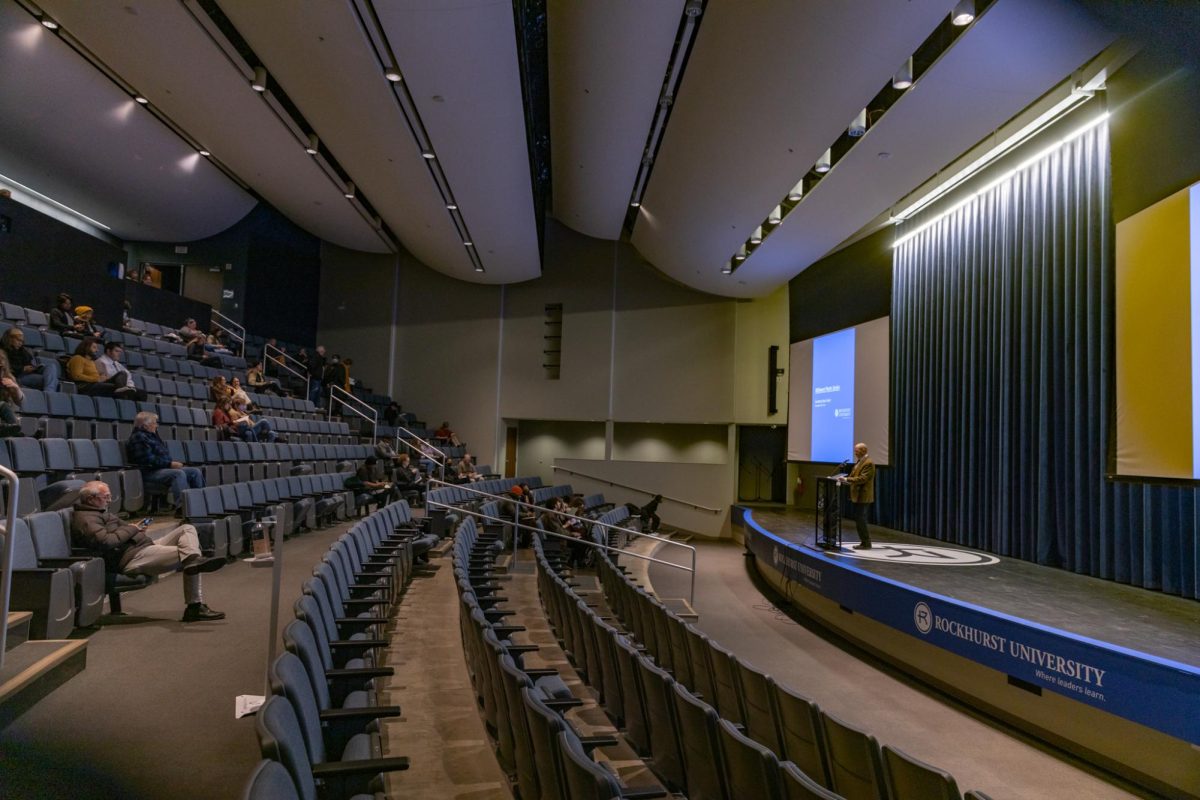In recent years, the rise of generative AI has shifted the way humans complete everyday tasks and navigate the contemporary digital landscape. The technology is quickly advancing, leaving many feeling uncertain of its future role and how the powerful tools can be appropriately moderated in settings like college academia. As generative AI continues to reshape the digital world, Rockhurst University professors are confronting its growing presence and how to balance innovation with ethics in the classroom.
Three Rockhurst faculty members—Dr. Jason Arthur (English), Dr. Shahid Ali (Data Science) and Professor Elizabeth Zayat (Health Science)—recently shared their perspectives on the promise and complexity of AI in their fields. Though their backgrounds differ, a shared theme emerged: AI can be a helpful tool, but only when applied intentionally and ethically.
“Generative AI can be positive, as it has the ability to facilitate personalized learning experiences for students. The university should promote AI literacy by educating students and faculty on the capabilities and limitations of the technology to ensure responsible use,” said Ali.
Their views reflect a larger national trend. A 2024 study by Cornell University found that 63% of research universities encourage generative AI with provided guidance on its usage. As institutions work to find balance, Rockhurst faculty emphasized the importance of integration with clear ethical boundaries, rather than outright rejection.
Professors at Rockhurst have already found helpful, practical uses for AI.
“I teach Irish literature, and I want students to immerse themselves in close reading. AI can be helpful by giving students crucial background information and helping interpret more difficult texts,” said Arthur.
Ali added, “In the realm of data science, generative AI models have helped with prediction, forecasting, and curating datasets. It has also assisted areas like healthcare and fraud detection by generating synthetic data and identifying patterns.”
Some professors find AI particularly helpful for pre-research and idea generation, especially when students struggle to get started. However, Professor Zayat cautioned, “It is important to be intentional about what content you are feeding into programs like ChatGPT, giving proper credit and putting in original effort instead of letting it create content for you.”
While AI offers many practical benefits, translating its ethical use into artistic and literary fields remains challenging.
“If you are going to succeed in writing classes, the goal is to develop critical thinking skills,” said Arthur. “While I don’t want to discount the creative possibilities of AI, there is an inherent challenge in regulating it and ensuring students are truly learning.”
Exactly how generative AI should be used remains contested among academic professionals, especially given the amount of gray area. Although Rockhurst has an academic honesty policy, there is currently no universal standard regulating AI usage on campus.
“I don’t foresee Rockhurst creating a universal standard to regulate AI since it’s too difficult and the needs of departments are different. Even preferences among teachers differ,” said Arthur. “While the policy is unlikely to change radically in the near future, we are looking for ways to mitigate cheating and are considering the hard-hitting questions when implementing changes.”
Although numerous programs exist to detect AI-generated content, some worry that the technology is advancing faster than our ability to monitor it.
“I am not sure if the technology will one day outpace our ability to detect it,” said Arthur. “I also feel like a lot of this is dictated by economics, and large companies want it to thrive, often at the expense of what is moral.”
He added, “A huge advantage of Rockhurst is our smaller class sizes. Having fewer students allows me to be more attentive to plagiarism and have conversations with students if necessary.”
Beyond ethical concerns, professors also note that AI is prone to inaccuracies.
“I have prompted AI with questions and received erroneous responses,” said Zayat.
A 2023 study by Purdue University also found that 52% of ChatGPT’s answers are incorrect.
The ethical conversation surrounding generative AI in academics is highly nuanced and has no clear answer. Regardless of its ambiguous nature, it is important for individuals to approach the issue with care and responsibility, applying the Jesuit values that Rockhurst University promotes.
“I think we will see more uniformity in the way Rockhurst addresses AI going forward,” Zayat said. “The technology is not going to go away, but we can take wiser steps in how we address the issues to create a better culture on campus.”








